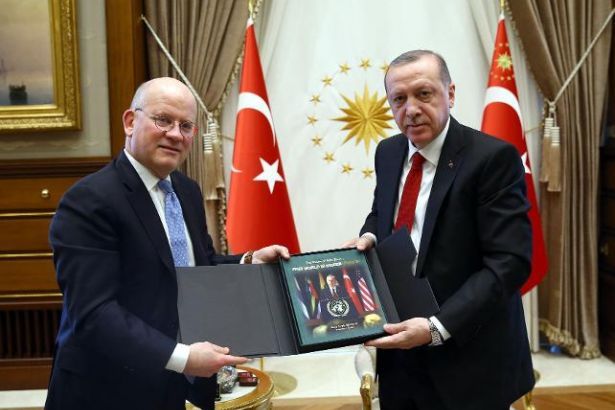Why are the CEOs of global monopolies visiting the Turkish president?

The Turkish President Recep Tayyip Erdoğan met with John Flannery, CEO of General Electric (GE), in his presidential palace on March 12. Recep Tayyip Erdoğan’s son-in-law Minister of Energy and Natural Resources Berat Albayrak also attended the meeting.
Erdoğan had previously met with Vodafone’s CEO Vittorio Colao during his prime-ministry, as well as Joe Kaeser, the CEO of electricity, energy and automation monopoly Siemens; and SpaceX’s CEO Elon Musk in the last month.
Erdoğan had declared himself "the CEO of Turkey", saying "I am liable to market my country".
Many public assets in the field of energy, oil, telecommunication, health and education in Turkey have been privatized during the tenure of the ruling Justice and Development Party (AKP).
Erdoğan organized a consultation meeting with some monopolies last year and told them how the AKP government put measures, tax incentives and subsidies into practice in order to promote foreign investment.
In a meeting, Erdoğan said, "We declared the state of emergency after the coup attempt [July 15 coup] so that our business world could work better. When I took office, all factories in Turkey were under the threat of workers’ strikes. Remember those days…But now, we have been immediately intervening workers’ strikes by reaping the benefit of the state of emergency to disallow them [workers] to unsettle our business world."
The AKP government declared a state of emergency on July 20, 2016, just after the July 15 failed coup attempt, and has so far extended it six times. Emergency rule allows the president and cabinet to bypass parliament in passing new laws and to limit or suspend rights and freedoms as they deem necessary.



